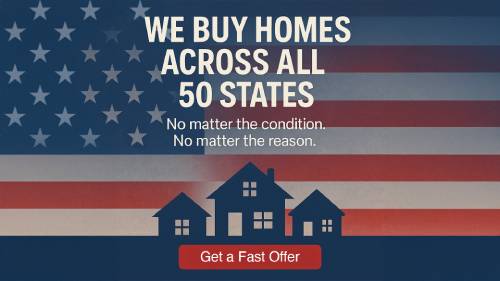Key Takeaways
- Affordable Investment: Mobile homes rent-to-own typically offer lower upfront costs compared to traditional home purchases, making homeownership more accessible for those on a budget.
- Flexible Living Options: These agreements often come with flexible lease lengths and payment plans, allowing individuals to adapt their living situation to their needs while working toward ownership.
- Financial Considerations: Prospective buyers should be aware of limited financing options for mobile homes, as traditional lenders may offer fewer favorable terms for these properties.
- Hidden Costs: It’s essential to consider potential hidden expenses, such as maintenance fees and property taxes, which can affect overall affordability and investment.
- Thorough Due Diligence: Understanding lease terms, financial implications, and the resale potential of the property before entering a rent-to-own agreement can prevent future financial strain.
- Evaluate Community & Location: Assessing the mobile home park’s amenities, safety, and proximity to essential services is critical to ensuring a satisfactory quality of life.
In today’s housing market, mobile homes offer a unique solution for those looking to secure affordable living options. Rent-to-own agreements provide an enticing pathway for individuals and families who want to transition from renting to owning without the traditional hurdles of home buying. But is this approach right for us?
While the flexibility and lower upfront costs can be appealing, we must also consider the potential downsides. From understanding the terms of the agreement to the impact on our credit scores, it’s crucial to weigh both the pros and cons. In this article, we’ll explore what makes rent-to-own mobile homes a viable option, while also highlighting the challenges we should keep in mind. Join us as we navigate this alternative housing opportunity together.
Overview of Mobile Homes Rent to Own
Mobile homes rent to own provides an appealing path toward homeownership. This arrangement typically allows tenants to rent a mobile home with the option to purchase it after a set period. With lower upfront costs compared to traditional homeownership, this model attracts individuals seeking affordable housing. The flexibility inherent in these agreements often meets the diverse needs of our readers, especially those uncertain about immediate long-term commitments.
Understanding the specific terms of rent-to-own agreements is essential. Lease options usually cover the duration of the rental period and purchase price agreements. Typically, a portion of the monthly rent contributes towards the eventual down payment, fostering a sense of investment in the property. By clarifying these details, we can help prospective homeowners navigate their options effectively.
Potential downsides also warrant consideration. Rent-to-own agreements may include higher monthly payments compared to standard rentals, which some could view as a disadvantage. We must also recognize the risk that the buyer may lose both their investment in the property and the monthly rent if they are unable to secure financing by the end of the rental term. This risk highlights the importance of thorough planning and financial assessment before entering into such arrangements.
Overall, mobile homes rent to own offers unique opportunities and challenges that necessitate informed decision-making. We encourage readers to reflect on their personal circumstances and financial readiness, ensuring alignment with their housing aspirations.
Pros of Mobile Homes Rent to Own

Mobile homes rent to own arrangements provide several advantages that attract potential homeowners seeking affordable living. These agreements allow renters to invest in a property with less financial strain than traditional home purchases. Below, we detail the key benefits.
Affordability Compared to Traditional Homes
Affordability stands as a primary benefit of mobile homes rent to own agreements. Mobile homes typically cost less than conventional houses, making them more accessible for individuals and families with tighter budgets. For instance, the average cost of a mobile home often falls between $50,000 and $100,000, compared to the median price of single-family homes exceeding $300,000 in many markets. Additionally, these rent-to-own options allow a portion of the monthly rent to apply toward a down payment. This structure reduces the overall financial burden as renters eventually transition to homeowners without needing to amass a large upfront payment.
Flexibility in Housing Options
Flexibility characterizes another major advantage of mobile homes rent to own. We can choose from various locations and models, ensuring we find a home that fits our lifestyle and preferences. This adaptability appeals to those in transient circumstances or individuals needing a temporary housing solution while working toward ownership. Rent-to-own agreements also often offer flexibility in terms of lease lengths and payment plans. This flexibility enables residents to establish a home base while securing ownership potential, creating a sense of stability and investment in their future.
Cons of Mobile Homes Rent to Own

While mobile homes rent-to-own agreements offer various benefits, they also present distinct challenges that potential buyers must consider.
Limited Financing Options
Limited financing options can significantly impact our ability to purchase a mobile home. Many traditional lenders view mobile homes as riskier investments compared to site-built homes, making it challenging to secure funding. This limitation often requires us to rely on seller financing or non-conventional lenders, which may come with higher interest rates and less favorable terms. For example, while standard mortgages usually cover a range of property types, some lenders may not offer loans for mobile homes at all. Therefore, we must thoroughly research available financing methods to ensure we’re making informed decisions about our investment and its long-term implications.
Potential for Hidden Costs
Potential for hidden costs remains a critical factor in rent-to-own agreements for mobile homes. While the monthly rent may seem affordable, additional expenses can arise unexpectedly. These may include maintenance fees, utility costs, lot rent, and insurance premiums. For instance, if a buyer overlooks property taxes or necessary repairs, it can quickly diminish the expected equity build-up. Further complicating matters, sellers might not always disclose all costs up front, leading to surprises down the road. Consequently, it’s vital for us to thoroughly review all terms and conditions before entering into an agreement to avoid financial strain later on.
Factors to Consider Before Choosing Rent to Own
Understanding the key factors before opting for a rent-to-own agreement on a mobile home is crucial. Lease terms play a significant role. Ensure we review the duration of the lease and the conditions under which we can purchase the home. A longer lease might provide stability, but it’s vital to confirm our intentions align with the lease expiration.
Financial implications also demand attention. We should assess the total cost of renting over the lease period against the potential purchase price. Analyzing monthly payment breakdowns helps us identify how much of the rent contributes to the eventual down payment. Unexpected costs—like maintenance and insurance—can quickly escalate, impacting overall affordability.
Creditworthiness is another essential consideration. Lenders may have stricter criteria for mobile home financing compared to traditional homes. Understanding our credit score and what it signifies in the lending market can inform our readiness for homeownership. We might also explore options for improving our credit standing before completing the purchase.
Location and community support affect both immediate living conditions and future value. We must evaluate the mobile home park or community for amenities and safety features. Proximity to schools, jobs, and healthcare facilities also impacts our quality of life.
Selling the property down the line should also factor into our decision-making process. We ought to research the resale value of similar homes in the area. Knowing potential market demands and fluctuations helps guide us in making a well-informed choice that aligns with our long-term goals.
As we weigh these factors, a thoughtful approach will enhance our decision-making process, ensuring our housing aspirations align effectively with financial realities.
Conclusion
Navigating the world of mobile homes rent-to-own can be both exciting and daunting. This approach offers a unique opportunity for many of us seeking affordable housing solutions while also presenting certain challenges we need to consider. By weighing the flexibility and lower costs against potential risks and hidden expenses, we can make informed decisions that align with our financial goals.
Ultimately, it’s about finding the right balance that fits our lifestyle and long-term aspirations. Whether we’re drawn to the affordability or the chance to invest in our future, understanding the nuances of these agreements is crucial for our success in homeownership.
Frequently Asked Questions
What are mobile homes rent-to-own agreements?
Mobile homes rent-to-own agreements allow renters to pay monthly rent with the option to buy the home later. A portion of the rent usually goes towards the down payment, making it easier for renters to eventually own the property.
What are the benefits of mobile homes rent-to-own?
The main benefits include affordability, flexibility in location and living options, and lower upfront costs. This arrangement is particularly attractive for those on a tight budget or in temporary situations but seeking to invest in homeownership.
Are there any downsides to rent-to-own mobile homes?
Yes, potential downsides include higher monthly payments compared to standard rentals and the risk of losing both investment and rent if financing isn’t secured at the end of the rental term.
How can hidden costs impact my rent-to-own agreement?
Hidden costs such as maintenance fees, utilities, and insurance premiums can significantly impact overall affordability. It’s crucial to carefully review all terms to avoid unexpected financial strain.
What factors should I consider before entering a rent-to-own agreement?
Consider lease terms, total rental cost versus purchase price, monthly payment breakdowns, and your credit standing. Additionally, evaluate the location and community support, as these affect your living conditions and future property value.
How can I improve my chances of securing financing for a mobile home?
Improving your credit score, understanding lenders’ criteria, and being prepared to provide necessary documentation can enhance your chances of securing favorable financing for a mobile home purchase.
Is renting a mobile home cheaper than renting a traditional home?
Generally, yes. Mobile homes tend to be more affordable than traditional homes, making them an appealing option for individuals and families looking for budget-friendly housing solutions.






